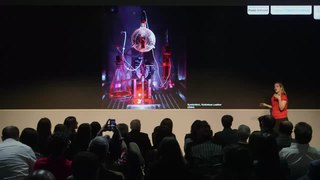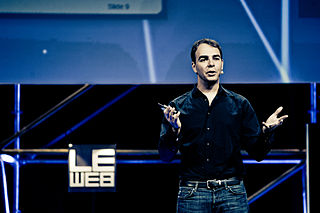A Quote by Mel Robbins
There's a lot of buzz words in the business world these days - Design thinking, innovation, fast-failure, disruption, cross-functional leadership - and at the heart of every one of these concepts is the ability for people to make small moves forward, learn, iterate.
Related Quotes
In an ideal world, social responsibility would be a prerequisite for design, and designers would vow to produce beautiful, useful, positive, responsible, functional, and economical things and concepts that are meaningful additions to—or sometimes subtractions from—the world we live in. Indeed, design deserves such thoughtful consideration.
Prosperity in human society is misunderstood. The difference between a rich and poor society is the number of problems that society solves for its citizens. That means technological innovation is the source of all prosperity, but with every tech innovation, you also get disruption - ultimately, social and civic disruption.
Generally, the technology that enables disruption is developed in the companies that are the practitioners of the original technology. That's where the understanding of the technology first comes together. They usually can't commercialize the technology because they have to couple it with the business model innovation, and because they tend to try to take all of their technologies to market through their original business model, somebody else just picks up the technology and changes the world through the business model innovation.
What’s next for technology and design? A lot less thinking about technology for technology’s sake, and a lot more thinking about design. Art humanizes technology and makes it understandable. Design is needed to make sense of information overload. It is why art and design will rise in importance during this century as we try to make sense of all the possibilities that digital technology now affords.
Consequently, the only thing I learned in school was typing. In the old days, people like me who don't have college degrees had a hard time thriving in society. But today, the ability to learn on your own or from your peers has become really easy. I think this change is leading to a fundamental disruption in education. Independent and lifelong learning are really starting to peak - there is an inflection point coming around how people learn.

































